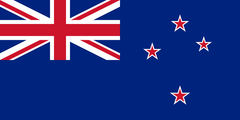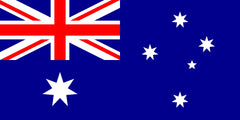Your Cart is Empty
Where is your Brain?
Ārepa is a company born in Aotearoa New Zealand. From our inception, we have always wanted to showcase the best of New Zealand to the rest world – from our unique ingredients, our research, science, design and most importantly, our unique culture.
Ārepa is a Te Reo Māori transliteration of the word alpha. Alpha means many things, but to us, Ārepa is the unique frequency of alpha waves found in the brain. When people are in this state, they have 'effortless alertness' performing their task, or the state psychologists call 'flow'. It is this frequency that inspired us to create Ārepa, a product that could help enable great achievements through Mental Clarity.
At the heart of it, the reason for using the name 'Ārepa' was to link our scientific grounding, which is the foundation of anything that we create, to our unique New Zealand cultural identity and honour tangata whenuatanga – indigeneity.
The founders are proud New Zealanders. Zac has links back to NZ's early history – one side of his whakapapa descends from the Northland Ngapuhi iwi and the Ngāti Hao hapu. Angus's ancestors were some of the first arrivals from Britain.
Our Story
Ārepa founders, Angus and Zac, have known each other since their university days. Throughout their 20s, they saw friends and family members affected by cognitive health challenges while also experiencing levels of stress and anxiety themselves.
Together, they looked for something that could help – a product that was good for the brain while also being natural and effective, but they couldn’t find anything. So they decided to create one themselves.
They worked with a world-renowned neuroscientist, Professor Andrew Scholey, to develop a range of 100% natural, clinically proven products that benefit the brain both in the short and the long term.
Ārepa has been nearly 10 years in the making, but for Angus and Zac, it feels like the real journey has only just begun.

Angus
Co-Founder & Co-CEO
Prior to Ārepa, Angus spent six years working for the New Zealand Government in Food-Technology at the world-renowned modular incubator-factory The FoodBowl, honing his skills in all things food-tech globally. He helped advise and support a wide range of companies locally and internationally on developing and commercialising new food, beverage and nutraceutical products. Angus believes in the relationship between food and health. He is passionate about promoting the best of New Zealand to the world developing high-end, sustainable, plant-based products that provide a meaningful benefit to consumers with a focus on the brain.

Zac
Co-Founder & Co-CEO
After finishing his industrial design degree with first-class honours, Zac, as you can expect, is ‘the design guy’. He has spent over 12 years developing solutions for multinational clients in the fields of transport, consumer electronics, healthcare and aeronautics, working at some of the world’s top design firms. Zac is an avid surfer, part-time funny-man and seriously good at handstands. Zac’s goal is to fuse the disciplines of design, food-technology and neuroscience and become the thought leader in this space globally.

Andrew
Chief Science Officer
Professor of Human Psychopharmacology, Andrew Scholey, has researched a number of areas of psychopharmacology, including the brain and behavioural effects of 'nutra' interventions (nutrition, nutrients, nutraceuticals). He is a leading authority on the neurocognitive effects of nutrition, natural products, supplements and food components. Andrew has been working with the founders since the beginning - creating our 1st formulation, which has since gone on to be patented twice, and multiple successful clinical trials. He is the brain behind our 100% natural brainfood.

Sam
In-house Neuroscientist
Having studied Neuroscience at Otago University, Sam returned to his hometown of Auckland and completed a Masters degree at the Centre for Brain Research under the guidance of Sir Richard Faull. Having completed his Masters which contributed to the understanding of Alzheimer’s Disease, Sam spent a couple of years doing research in the area of Stroke Rehabilitation. The goal of this research was to find novel techniques for treating stroke patients, attempting to restore motor function and allowing people to regain quality of life.




















